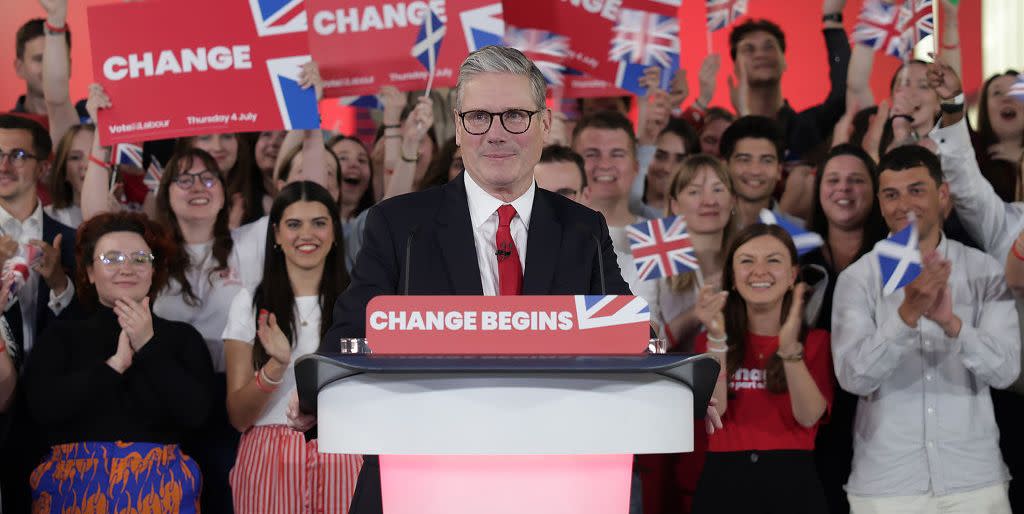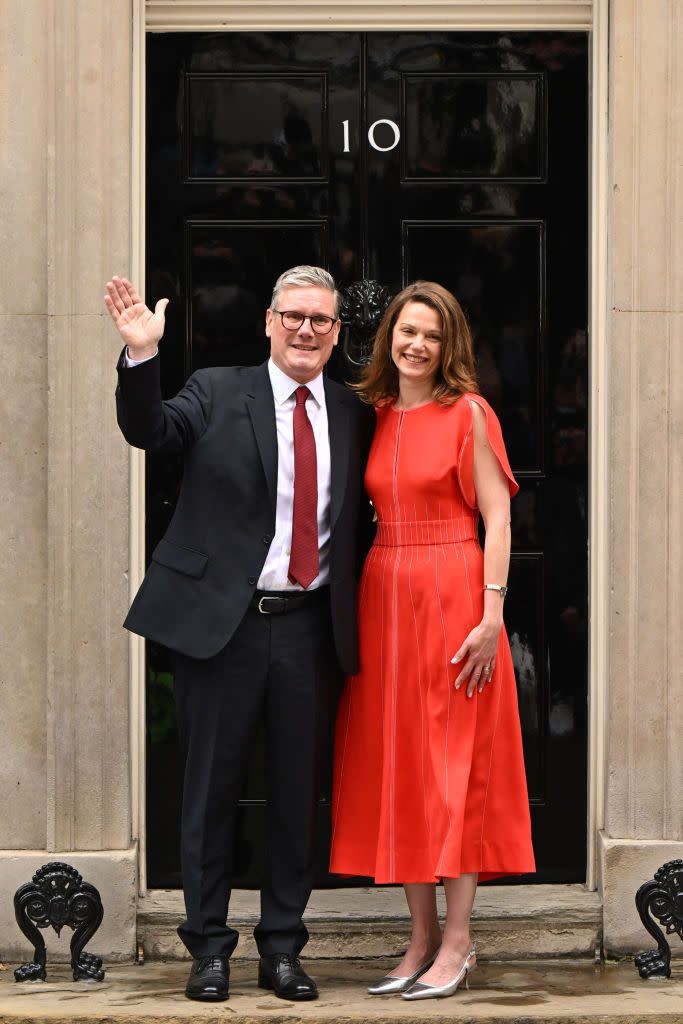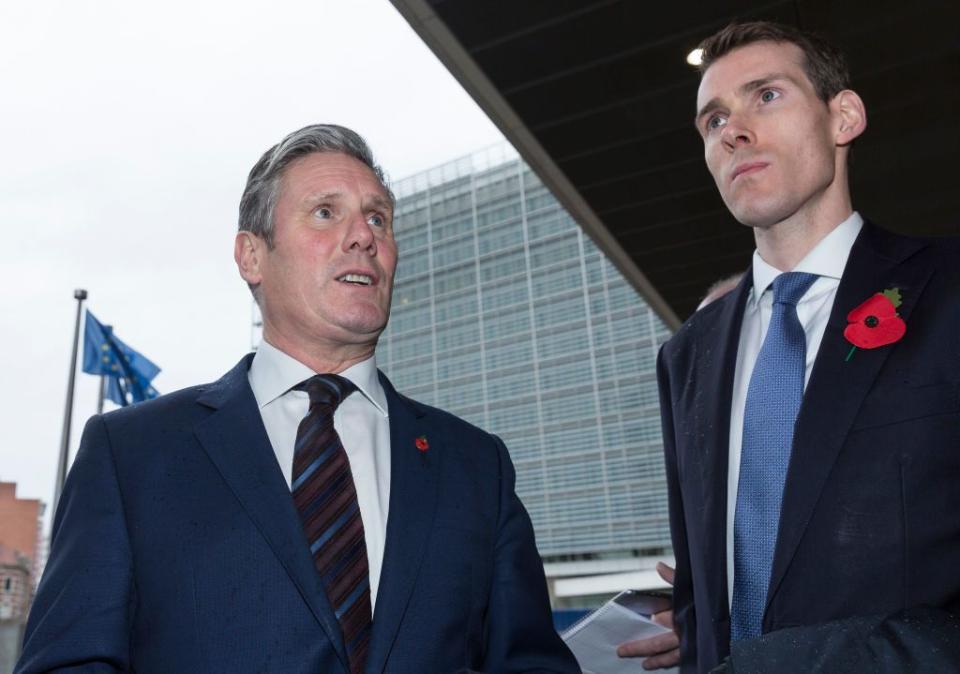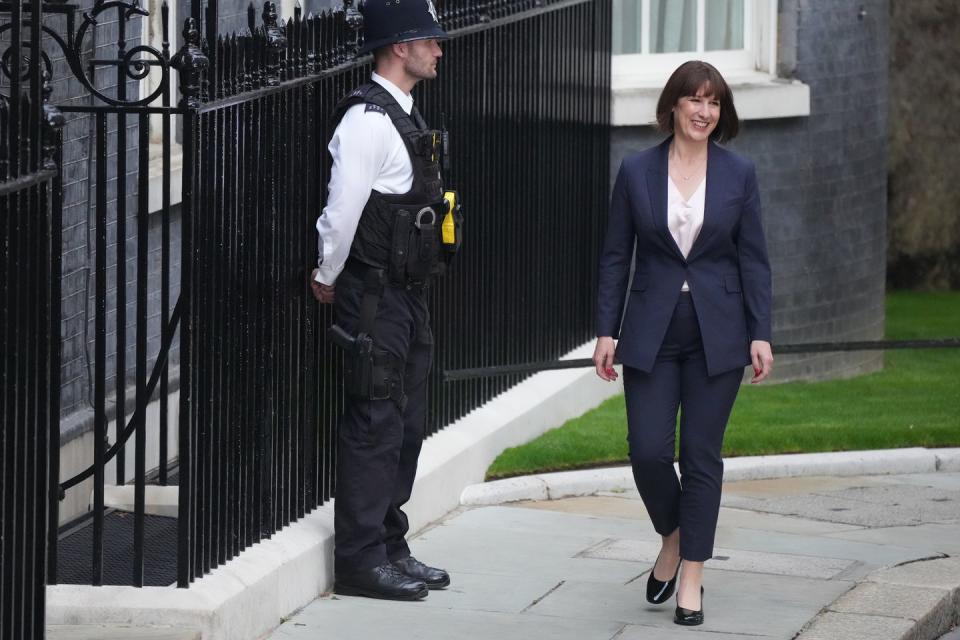Will Young Women's Fortunes Actually Improve Under Labour?

If you are a British Millennial or Gen Z woman, which means you’re currently under the age of 40-ish, here are a few things that are true for your generation (unless you happen to have very wealthy parents).
Your housing costs are historically high, regardless of whether you rent or own your home.
If you have children, even with the available State support, you’re paying some of the highest childcare costs in the OECD.
If you went to university and took out a student loan, you’re paying more back than your parents or grandparents’ generations did. Plus, a lot of interest.
Your wages likely won’t have risen significantly since the 2008 global financial crisis and, as a result, you have around 30 per cent less disposable income than Generation X did at your age.
Over the last 14 years of Conservative government, under David Cameron, Theresa May, Boris Johnson, Liz Truss and then Rishi Sunak, little was done to properly address housing costs and the plans to make childcare more affordable barely got off the ground before Mr. Sunak called a snap election for reasons which, as yet, are known only to him. He must have had some, right?
Let’s hope so because the Conservative Party will want justification for the decision which has delivered a landslide victory for Labour and resulted in major losses for the Tory Party, their worst election defeat in history.
Sir Keir Starmer is now Prime Minister. For the first time since 1997, a general election in Britain has a Labour government. So, could this reshape the fortunes of younger generations who have lived under Tory rule for the entirety of their adult lives?

The short answer is yes. The longer, more complex, answer is that it might not be entirely within our new government’s control.
First, the good news: Labour has a healthy majority of 168 seats which is more than enough to get some of the policies they have pledged through the House of Commons.
The cost of housing is where an impact will be felt first. Back in the depths of 2019, the Conservatives pledged to ban Section 21 ‘no fault evictions.’ These are a leading cause of homelessness and mean that private renters can be kicked out of their home at any time, even if they’ve done nothing wrong. The Tories tried to ban these evictions, but they couldn’t get the legislation that would do it - the Renters’ Reform Bill - through the House of Commons because landlord backbenchers kept blocking it.
Labour’s Deputy Leader and now Housing Secretary Angela Rayner (a working-class woman who has lived in social housing) promised that Labour would ban Section 21 immediately if elected. This will make renting more stable and mean they can’t be made homeless with just two months’ notice. That will reduce the likelihood of people’s rent going up when they’re forced to frantically search for a new home against their will.
During the election campaign, Chancellor Rachel Reeves (the first ever woman to do the job) also did not rule out looking at rent increases and giving local councils the power to do something about them at a local level. This is something that the Conservatives refused to do.
I sat down with Labour’s new housing minister, Matthew Pennycook just before the election. He outlined Labour’s proposal for planning policy. Stay with me. If you are worried about Britain’s housing crisis, you’re going to need to start getting really into the planning reform.

In their first days of government, Labour are going to make changes to how homes are built. Their hope is that this will speed up housebuilding and provide new homes for first-time buyers.
New compulsory purchase order (CPO) powers for public bodies, including newly created development corporations, combined with housing targets and £25m in extra funding for new planning officers across the country and allowing low-value bits of the green belt to be put forward for development are how they are planning to achieve this.
Labour believes these policies would facilitate their new ‘Freedom to Buy’ scheme which the party hopes will support more than 80,000 young people to buy homes of their own over five years with government-backed mortgages.
In total, they hope to build 1.5 million homes over the next five years. A significant number of these will be social homes.
It sounds great. And it’s certainly a solid plan. However, some obstacles could appear in Labour’s path. As we know from the Coronavirus pandemic and the inflation crisis - things can turn on a dime.
It’s also a harsh truth that building new homes won’t necessarily bring house prices down. Don’t expect a major reset of the housing market in that respect but do expect the housing crisis to ease off if they succeed.
Childcare is also set to become more affordable. Labour have committed to continuing with Rishi Sunak’s expansion of free childcare to all children under five in England if elected. Shadow education minister Bridget Phillipson has said Labour will not remove any entitlements promised to families "in the future".
Previously, 30 hours of free childcare was available for working parents with children aged three and four, although that is limited to 15 hours a week if at least one parent earns more than £100,000.
This is good news for parents or those who hope to become parents. However, nurseries say they have concerns about finding staff to meet demand. It’s thought the policy could mean there are around 100,000 new nursery places will be needed.
And, finally, there’s no shying away from the fact that Sir Keir Starmer has said he will keep the two-child benefit cap. This pernicious policy has left around 490,000 children in poverty and experts are continually calling for it to be scrapped, but this would cost around £3.6bn to do.
Former Labour leader Jeremy Corbyn was re-elected as an independent MP last night after being expelled from the party over his handling of antisemitism. He opposes the two-child cap and will no doubt be vocal in the coming months about the need to ditch it.
There’s a lot to like about the changes Labour are proposing to make. But there is a big economic elephant in the room. Chancellor Rachel Reeves has said she will be a proponent of “securenomics” and Labour have committed to the fiscal debt rule, which means that government debt must fall each year.

However, expert economists say there is no way to boost Britain’s economy and reduce poverty without investing in public services again. So in the coming weeks and months, if they really want to improve the NHS, boost childcare and alleviate the housing crisis our new government will be facing some difficult decisions. For now, we can hope they make the right ones.
ELLE Collective is a new community of fashion, beauty and culture lovers. For access to exclusive content, events, inspiring advice from our Editors and industry experts, as well the opportunity to meet designers, thought-leaders and stylists, become a member today HERE.
You Might Also Like


